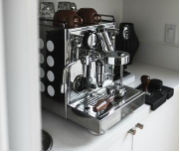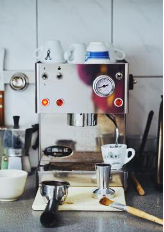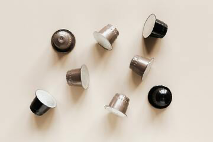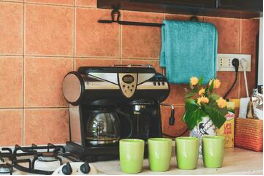
When I wake up in the morning, my reality does not kick in until my first coffee does. At this time of day, it’s too hard to struggle down the street to grab my first cup of Joe at my local café. Besides, why would I go to all that effort when I have my bean-to-cup coffee machine sitting on my kitchen bench?
Thanks to modern technology, home coffee machines and coffee equipment have evolved a lot since the traditional stovetop pot. The good news is that machines these days allow you to make café quality coffee from your very own kitchen.
When you start shopping around for your coffee machine, the options seem endless, and you start feeling overwhelmed with information overload. The good news is when it comes to the best coffee machine, there and no right or wrong choices. Coffee machines, like coffee, all come down to your personal preference.
To get started, let’s get you on the right track by walking through some of the best coffee machines available and weighing up the pros and cons of each of these options.
Bean-to-cup Machines

The bean-to-cup coffee machine includes an integrated coffee grinder that grinds the whole coffee beans. Bean-to-cup machines prepare freshly made espressos, macchiatos, and flat whites in less than one hot minute.
Pros
- Brews the freshest coffee, fast – making it perfect for coffee connoisseurs
- Offers a broad range of specialty drinks by clicking one button
- Many models are designed to automatically discard used coffee grounds
- Machines usually have a steam arm that allows you to make frothy milk-based coffee beverages.
Cons
- This machine requires regular attention and cleaning
- Unlike the espresso machine, in terms of strength, sweetness, and milk, you can’t customise your cup of coffee
- Bean-to-cup machines are one of the most expensive coffee machine options on the market
- It requires daily cleaning to prevent breakdowns, especially if you use the steam arm to froth milk.
Semi-Automatic Espresso Machines

There is a range of different espresso machines available on the market. These include manual, semi-automatic, automatic, super-automatic, and capsule machines. These machines heat the water and run it through pressed coffee grounds at high pressure.
Semi-automatic home espresso machines are suitable for people passionate about their coffee and those interested in controlling the coffee-making experience. Since this machine is not fully automatic, you will still need to grind the coffee, load the portafilter, compress your coffee grinds (tamp), and start the shot with the press of a button.
Pros
- Suitable for making strong coffees such as espressos and Americanos
- Espresso machines are great for people who want complete control over the coffee-making experience
- Allows you to measure out the right dose of coffee by giving you complete control of the water flow
- Relatively cost-effective in comparison to automatic espresso machines
- Machines include a steam arm allowing you to create frothy milk-based drinks
- Semi-automatic espresso machines let you brew other beverages like tea and hot chocolates.
Cons
- The initial outlay is expensive, so it is essential to do your homework before buying an espresso machine
- A lot of these machines are large and take up a lot of bench space in your kitchen
- It can be time-consuming to make your coffee – not ideal if you are on the go.
Pod Coffee Machines

Pod or capsule coffee machines have been popular for home use since the 1990s. Pod coffee machines use single-serve disposable capsules that have been pre-filled with ground roasted coffee beans. On the whole, pod machines are cheaper than manual coffee machines or automatic espresso coffee machines.
Pros
- Most straightforward coffee machine to operate – push a button technology
- Coffee pods/capsules are available in a variety of different flavours and strengths
- Perfect for people on the go – it is quick, clean, and easy to use
Cons
- Used pods create environmental waste. You can recycle your pods at Collect Plus points, but these can be inconvenient for people to frequent.
- It is important to shop around as pod coffee machines can be expensive when adding up the costs for pods, filters, and the machine itself.
Filter Coffee Machines

If you are a high volume coffee drinker, then a filter coffee machine might be the right fit for you. These machines are also known as drip filters and percolators. Filtered coffee drips hot water through a ground coffee filled disposable filter. The filtered brew is collected in a glass jug that is placed on a hot plate.
Pros
- Easy to use and makes a larger quantity of coffee at once
- Suitable for those people who drink many cups of coffee a day
- Perfect for office environments because there’s endless coffee available
- Produces limited waste making it environmentally friendly
Cons
- The quality of this coffee is generally not as good as coffee produced from pod coffee, bean-to-cup, plunger, and traditional pump coffee machines
- The warming plate continues cooking the coffee sitting in the glass jug once brewed.
Conclusion – Which Is The Best Coffee Machine?
In addition to the coffee machines listed above, there are several non-electric coffee maker options available. Some non-electric coffee makers include coffee plungers (French Press), cold coffee brew pots, drip cones, pour-over glass coffeemakers, and the Moka pot (stovetop coffee maker).
When it comes to selecting your coffee machine, you need to weigh up important factors and ask yourself these questions:
- How much manual maintenance do you want from your machine?
- What is the quality of the coffee you are looking for? And
- How much are you willing to invest?
Before you buy anything, make sure you know the best brewing method and do your homework on the machine. And remember, quality coffee machines can be expensive, but in the long-term, they are worth their weight in gold
